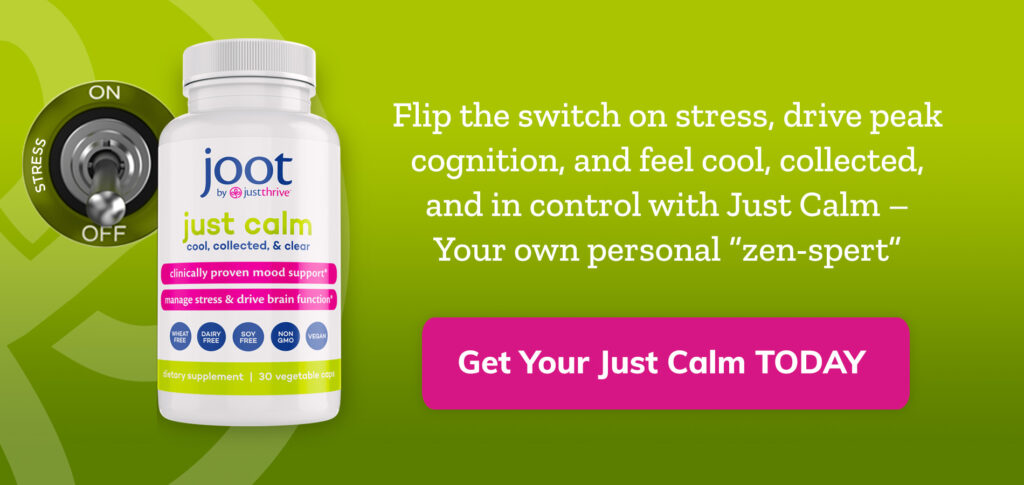Table of Contents[Hide][Show]
We’ve all experienced stress and anxiety: the racing heart, sweaty palms, maybe a stomach ache. You might even feel like crying or lashing out.
What’s going on?
Are you experiencing stress, or is it anxiety? What’s the difference between the two?
And more importantly, what can you do to feel like yourself again?
Let’s check out some of the signs of stress and anxiety, figure out which of the two is affecting you, and look at the most effective techniques for managing them.
The Difference Between Stress and Anxiety
At first glance, stress and anxiety are remarkably similar. If you only look at their symptoms, it’s nearly impossible to tell the difference between the two.
And one can easily lead to the other. Stress can cause you to feel anxious; anxiety can trigger a stress response.
It’s when you look at the root causes that you can determine whether you’re experiencing stress or anxiety.
Defining Stress
All of us experience stress at some point; more than half of Americans say they’re dealing with moderate stress. And stress is different for everyone. A situation that causes you stress might not affect someone else the same way.
Stress is caused by a specific external stressor. It can be a short-term trigger, such as an upcoming deadline at work or a fight with a friend. Or stress can be caused by a long-term situation, such as chronic illness or ongoing relationship issues.
Short-lived stress is also known as acute stress. It can help your body deal with an uncomfortable situation. If stress goes on for too long, it can become chronic. Chronic stress can have a negative emotional, mental, or physical impact.
In either case, though, once the stressor goes away, your stress, and its symptoms, can begin to disappear.
Defining Anxiety
Anxiety affects 31% of adults, making it the most common mental disorder in the U.S.
When you are experiencing anxiety, you might not be able to identify the exact trigger. Instead, you’ll feel a persistent and excessive unease and worry. Unlike stress, anxiety won’t go away even when the stressor (identified or not) goes away.
Take work, for example. A specific work event, such as having to give a presentation, might cause you stress as you prepare. Once your presentation is done, your stress is over.
But if you have ongoing conflicts with a coworker, that could cause anxiety. You dread going to work. You think about your coworker and mentally prepare to deal with them each morning. On weekends, you replay past conflicts and how you could have avoided them. You worry that your boss will take your coworker’s side.
And if your troublesome coworker leaves or moves to another department, your anxiety won’t go away. You’ll still be nervous about potential conflicts with others.
The key difference between stress and anxiety is that stress diminishes once the stressor is removed. Anxiety will continue even after the stressor is removed.
Symptoms of Stress and Anxiety
Stress and anxiety have almost identical symptoms. Your body can react emotionally, mentally, or physically. More than likely, you’ll experience a mixture of responses.
Let’s look at some of the most common symptoms of stress and anxiety.
Physical Effects
- Breathing rapidly (hyperventilating)
- Changes in libido
- Digestive issues
- Dizziness
- Dry mouth
- Fatigue
- Headaches
- High blood pressure
- Increased heart rate
- Muscle pain or tension
- Rapid heartbeat
- Sleep issues (too much or too little)
- Sweating
Emotional/Mental Effects
- Difficulty concentrating
- Feeling overwhelmed
- Feeling that you can’t get things done
- Impending sense of panic or doom
- Irritability
- Lack of motivation
- Mood swings
- Nervousness
- Restlessness
- Sadness or depression
- Tension
Related
Depression and the Gut: How Bacteria Affects Your Mental Health
Learn the link between depression and the gut and what you can do to boost the strength your mental health by taking care of your gut health.
Just one or two of these symptoms might not be due to stress or anxiety. Lack of sleep, illness, or a poor diet can also cause these responses.
But if you’re feeling several of them, a closer look at what’s going on in your life can help you determine whether it’s due to stress, anxiety, or something else.
And, different situations might draw out different responses. So while a conflict at work could cause high blood pressure and irritability, a breakup might cause digestive issues and sadness.
Common Triggers for Stress and Anxiety
Experiencing mild stress in your life is pretty much inevitable. But some triggers can cause more severe stress or anxiety, leading to a more negative impact on your health.
Here are some of the most common stress triggers:
- Bullying
- Breakup or divorce
- Busy schedule
- Difficulty in school
- Family troubles
- Job loss
- Loss of a loved one
- Overworking
- Relationship problems
- Relocation
The Surprising Link Between Your Gut and Your Anxiety
Your gut microbiome contains trillions of bacteria. In a healthy gut, beneficial (probiotic) bacteria greatly outnumber harmful pathogenic bacteria. And those probiotic bacteria play a crucial role in maintaining your mental health.
Among many other health benefits, probiotic bacteria:
- Produce GABA, the “calm-down” brain chemical that helps your mind and body wind down by blocking negative brain signals and reducing excess nervous system activity
- Manage cortisol and other hormones that surge when you’re stressed or worried, so they turn off when they’re supposed to
- Produce short chain fatty acids (SCFA) that help your body handle stress and overcome anxiety
Unfortunately, sometimes your gut microbiome population shifts dramatically, allowing the “bad” bacteria to outnumber the “good” bacteria. This condition, known as dysbiosis, produces a negative impact on your health.
Research shows that dysbiosis can cause spikes in mental health issues, including anxiety and depression.
Thanks to our modern, always-plugged-in world, there’s no escaping things that can cause stress and worry. That’s why it’s so important to keep your gut microbiome in healthy balance, with more good bacteria than bad.
Related
Anxiety and the Gut: How They’re Connected
Let’s explore the connection between anxiety and gut health, as well as ideas for improving the health of both.
When to Seek Help
Stress, in particular, can be short-lived. It’s not always necessary to treat it. For example, if you’re feeling stressed out because you had a fight with your best friend, your stress will go away in a couple of days when you resolve your argument.
But if you’re dealing with long-term (chronic) stress or anxiety and it’s negatively impacting your health, it may be time to seek treatment.
Here are some signs that it’s time to take control of your stress or anxiety:
- Constant worrying
- Depression
- Feeling like you’re always under pressure
- Overeating
- Panic attacks
- Smoking
- Turning to alcohol or drugs
- Withdrawing from family and friends
How to Overcome Stress and Anxiety
If your stress and anxiety are overwhelming you and lowering your quality of life, you can and should do something about it. Luckily, there are many things you can do to manage stress and anxiety on your own.
Lifestyle Changes
Everyone handles stress and anxiety differently, so there is no “one size fits all solution.” You may need to try a few different stress/anxiety management techniques to find the one that works best for you.
Here are our favorite strategies for overcoming stress and anxiety:
- Identify your stress and anxiety triggers and do your best to avoid or reduce them.
- Avoid critical self-talk. Instead, build yourself up, be your own biggest cheerleader, and talk to yourself as you would talk to your best friend.
- Replace negative thought patterns with positive ones. Instead of saying “I can’t” say, “I’ll try my best.”
- Create a support network. Have family and friends you can talk to and share your problems with.
- Improve your interpersonal skills so that you’re more comfortable dealing with difficult people or situations.
- Find positive outlets for your extra time, such as a hobby or cause that you’re passionate about.
- Get organized. Make a realistic to-do list and prioritize your tasks so you don’t feel overwhelmed.
- Avoid alcohol, drugs, and tobacco. They may seem to relax you at first, but can actually add to your anxiety.
- Exercise regularly. The “feel good” hormones released when you exercise can clear your mind and boost your mood.
- Eat a healthy, balanced diet. Your body will be better able to fight off the effects of stress and anxiety when it’s feeling well.
- Practice relaxation techniques such as deep breathing and meditation.
- Get a good night’s sleep. Being well-rested can give you the energy you need to fight off the symptoms of stress.
Take the Right Probiotic
Because of the undeniable link between your gut and your brain, we know the importance of having the right kind of bacteria in your gut. And even though you already have good bacteria in your gut, sometimes you need to shore up their quality and quantity with probiotics.
There’s a special strain of probiotic known as Bifidobacterium longum 1714™ (BL1714) that works like no other to help you stay calm and steady. Scientists have been wowed by how effectively BL1714 supports positive moods… and they’re learning about more benefits every day!
Recent research shows that BL1714 helps your body turn down its high-alert signals, so you have a chance to fully relax and destress. And that’s just the start of how this unique probiotic can help you get in a calm groove!
Numerous studies have shown that BL 1714™ can be an absolute powerhouse in the fight for your mental well-being because it:
- Quickly promotes a healthy response to everyday stress
- Encourages a steady, serene, and balanced mood
- Drives mental clarity, focus, and alertness
- Supports great energy and optimal sleep
Get Plenty of Vitamin B
To maintain a sense of calm, your body needs plenty of B vitamins. Your nervous system requires these essential nutrients—especially B6, B9, and B12—to stay healthy and function properly. And because they’re water-soluble, your body needs a consistent supply to keep your mood steady.
The three Bs mentioned above support the production of important brain chemicals like GABA. They also support healthy mood and brain function.
Relax and Reboot with Just Calm
You can help your body mount a healthy stress response with Just Calm, a relaxing new formula that contains clinically studied Bifidobacterium longum 1714™ and a stress-soothing blend of B vitamins.
You can’t avoid stressors, but you can help your mind and body cope with them effectively with support from Just Calm.
Final Thoughts
In today’s society, stress and anxiety are all too commonplace. And the people and situations that cause them are sometimes unavoidable.
But that doesn’t mean that you have to live with them, or their symptoms.
There are plenty of ways to manage your stress and anxiety. Practice the strategies we shared above, take the right supplements, and most of all, remind yourself that everything will be okay.
You May Also Like…






